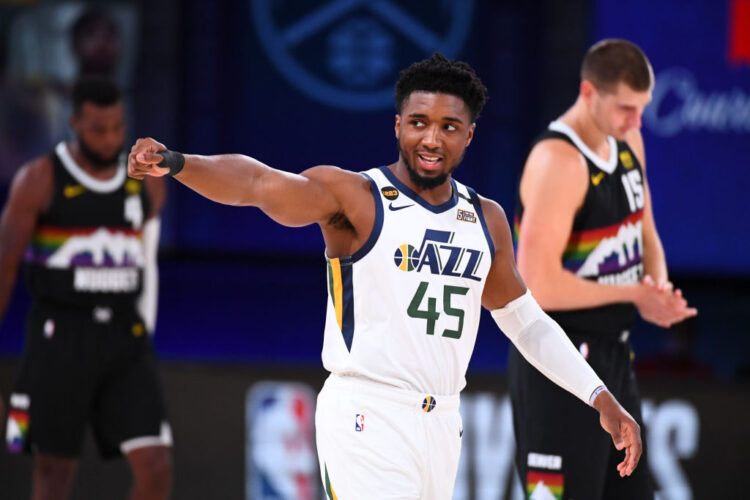

The Knicks own four first-round picks from other teams (the Washington Wizards in 2023, the Dallas Mavericks in ’23, the Detroit Pistons in ’23 and the Milwaukee Bucks in ’25). The quantity of first-rounders the Knicks give up in a hypothetical Mitchell trade is not nearly as important as the quality. It ties into a concept addressed in a story I wrote earlier this week. And if the Knicks want to make another big splash to add to Mitchell, they need those picks. First-rounders aren’t useful only for drafting promising players. It’s why what remains from a hypothetical Mitchell deal would matter so much. Mitchell will be at the beginning part of it. If everything goes well, come the summer of 2024, RJ Barrett won’t even be in his prime yet. The reality is that the Knicks wouldn’t be sacrificing much by fighting to rise above the Play-In Tournament for a couple of seasons. It’s two years from now, which means (because teams can’t trade away their first-round picks in consecutive seasons and can deal first-rounders only as far as seven years out) the Knicks would open up another tradeable first to include in a deal for an All-Star. Julius Randle will be in the same position. In the summer of 2024, Jalen Brunson will enter the final guaranteed year of his deal. The new fad is for great players to sign extensions, then ask out later if need be, instead of waiting until the final years of their contracts to demand a trade or letting them expire, then bolting elsewhere. The free-agency period isn’t what it used to be. Instead, it could be the first step to building a viable contender down the line.Īll signs point to 2024 when the Knicks could put themselves in a position to trade for another star. Bringing the 25-year-old to New York would not have to be about the present. But the thing is, the Knicks could rationalize a Mitchell trade while acknowledging this rhetorical too. The Giannis Antetokounmpos of the world are special for a reason. There are only a few players on the planet whose sole existence guarantees you won’t get stuck in the lottery.

The maximum package they should offer for Mitchell should have enough left over to where they feel like they could still bring in another headliner, specifically in the summer of 2024.Įvery so often, you hear a critique of the Knicks’ pursuit of Mitchell: Would his presence alone make them challenge for a title? The Knicks can justify handing over that historic haul for Mitchell, but there’s a specific mentality they should have when they converse with the Jazz. Maybe Utah never reduces the asking price or New York never gets to a place where it deems a Mitchell trade worth it. It’s not so easy to come to terms with unloading so many first-rounders. The Knicks have been Mitchell’s rumored next destination for years. The two franchises seem like trading soulmates. The Knicks connected with the Jazz about Mitchell more than a week ago. The New York Knicks, however, should follow up with the inverse: If we trade for Mitchell, what would be left over? No matter the specifics, it’s clear the Utah Jazz want a historic, pick-filled package in exchange for Donovan Mitchell, a premium that leads to a basic question any team considering a trade for the three-time All-Star has to ask: How much is too much to give up?


 0 kommentar(er)
0 kommentar(er)
